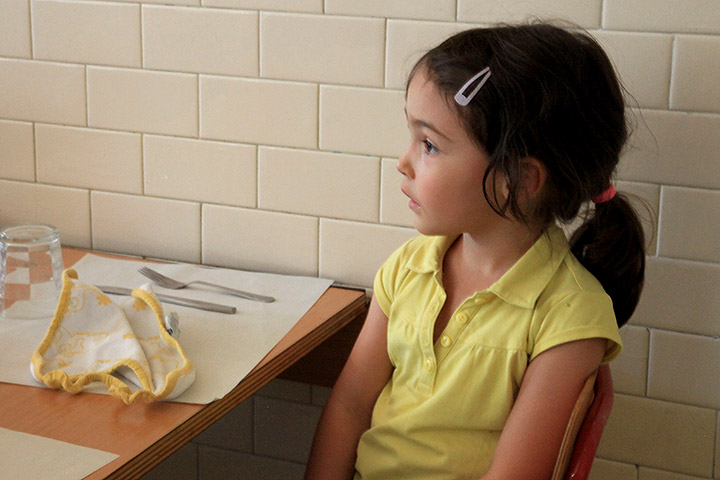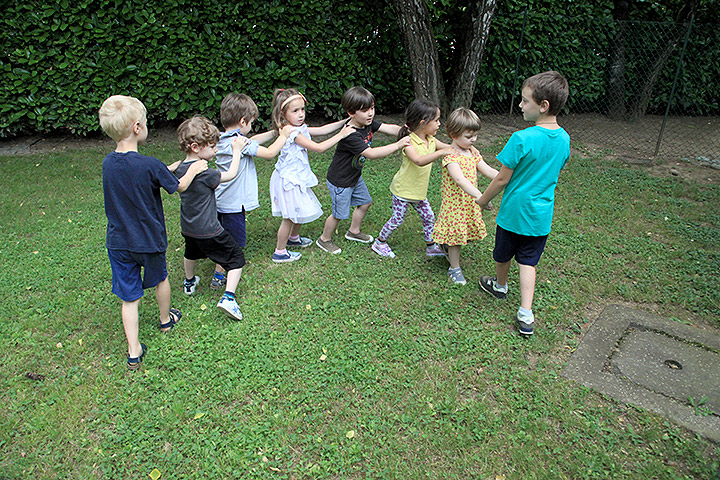The project
For Gioiosa learning is fundamental because it promotes the development of the child. This can only happen if the learning is linked through experience to real situations, which allows the child to develop critical thinking, reflect, and hypothesize through hands-on exploration.
In fact, direct experience has some fundamental characteristics for the learning process:
- Joy
- Curiosity
- Agency
With the word exploration, we refer not only to the physical investigation but also to its recollection and evaluation, which allows the child to go from simple concepts to more complex ones.
Children in this age group co-participate in the learning process and are the main protagonists. Between 3 to 6 children develop their basic personality traits and start their conscious decision-making, gaining autonomy.

The child is in transformation and their cognitive, emotional, and social growth can be enhanced by rich, various, and engaging experiences provided.
The child is now conscious to be different from others, developing an initial understanding of the rights and needs of the people around them, developing empathy, and creating richer and more structured relationships every day.
During the 3 years attending the Scuola dell’infanzia, the child undergoes a deep transformation regarding physical, cognitive, linguistic development, and autonomy.
To respond effectively to children’s needs, children are grouped into different “sezioni” (rooms) with specific age-appropriate educational and cultural projects, which take into consideration children’s needs.
GIARDINIERI (Gardeners)- 3 year-olds
For children aged 3, the tale (or Fiaba) represents an effective tool to communicate their magical world, imagination, feelings, and emotions.
To scaffold children in their understanding of the value of Tales, the educator doesn’t provide explanations but facilitates children’s expression through a variety of art experiences. The name GIARDINIERI refers to the importance Nature has within the program: by taking care of the seeds in the veggie garden and seeing them growing children learn care practices that symbolically reflect their learning journey.
ESPLORATORI (Explorers) 4-5 years old
When a child turns 4 they go from the egocentric phase to a more social one characterized by the need to be part of a group. To respond to this emerging need the child is scaffolded to learn about ancient cultures to analogically discover qualities, values, and emotions that are fundamental to open to the social dimension.
STORICI DI PRIMINA (historians)
Children aged 5 develop an emerging need to story tell and leave a mark. To respond to this need the child learns about the Camuna culture (the Camuni were a people of ancient Italy with a pre-Indo-European language), which, in analogy has left marks of itself through graffiti and created its social reality going from hunting to agriculture.

To enhance furthermore the development of the children, multi-aged grouping is promoted during daily routines and specific projects.
By providing cultural projects to the children, the educators allow them to touch base with their own emotions to identify them, recognize them and share them through play, with the ultimate goal to be able to effectively express them. Emotional development owns a fundamental space within our learning experiences where both educators and children engage in a variety of experiences aiming to support self-regulation, emotion recognition, and expression.
To provide this quality of care the ratio educator to child is 1 to 10, which allows educators to create an educational relationship with all children and their uniqueness.

